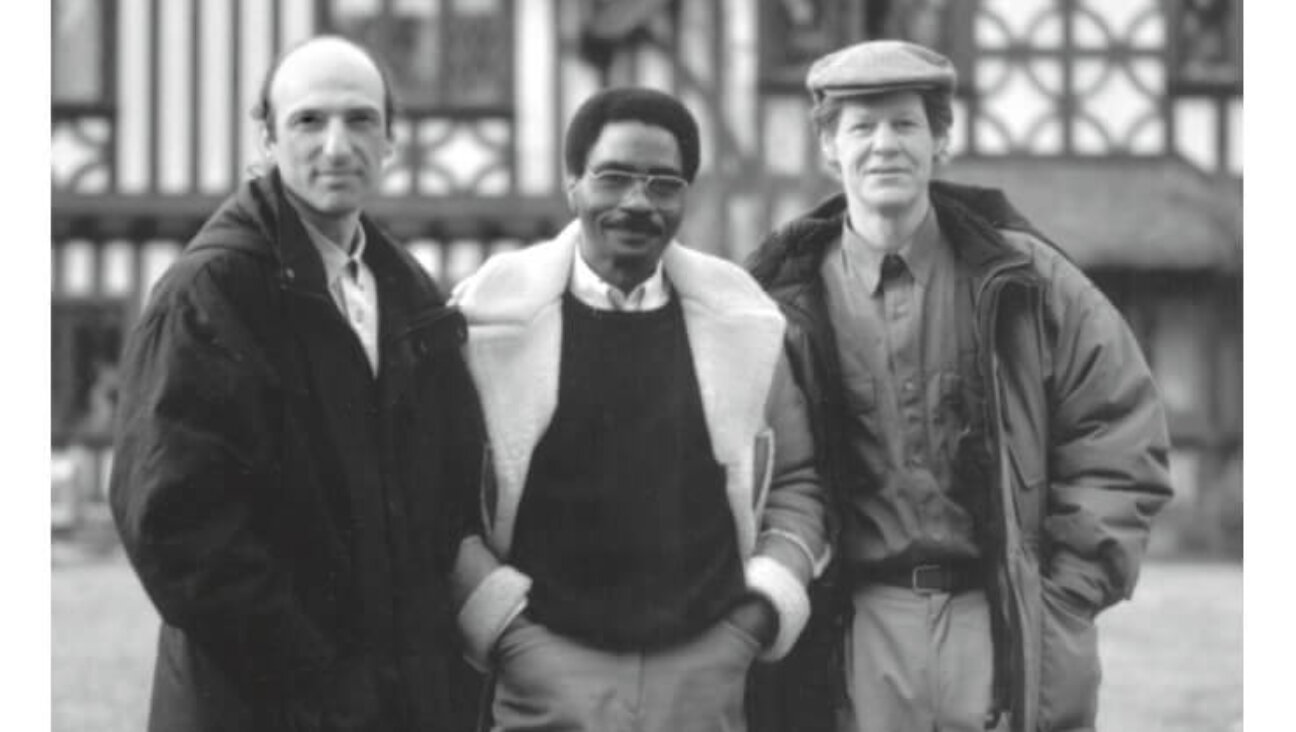March 5, 2004
After Gaza, What’s Next?
Yuval Steinitz, a Likud Knesset member and chairman of the body’s foreign affairs and defense committee, was quoted by the Forward as saying that he might support a pullout from Gaza if “it will enable us to strengthen our position vis-à-vis the Palestinians in a few years time, and if it will be clear that this is not the beginning of a slippery slope” (“Conference Gets Close Look at Bombing,” February 27).
Unfortunately, that was the conceptualization of former prime minister Menachem Begin in negotiating the Camp David accords in 1978. He would allow the Egyptians to reassert their rule over Sinai, and he would save the areas of Judea, Samaria and Gaza, which he considered portions of Israel’s historic homeland.
It did not work as Egypt has the Sinai, is permitting the Palestinians to smuggle their weapons through tunnels under the border and has never permitted the peace to go from “cold” to “warm,” while Israel, since then, has handed over to the PLO terrorist leadership significant sections of Judea and Samaria.
Steinitz should know his recent slippery history before he sends us into a very uncertain future and a more dangerous slope.
Yisrael Medad
The writer is a resident of Shiloh, a Jewish community in the West Bank.
A Pleasing Outcome
I am pleased that my comments to the Jewish Council for Public Affairs contributed to the decision to reconsider a proposed recommendation of greater federal monitoring of government-funded Middle Eastern studies centers (“Dershowitz Backtracks After Causing Stir at Parley,” February 27).
Although I agree with the thrust of the concern behind the proposal, namely that many such centers are totally biased and one-sidedly anti-Israel, I worry deeply about any federal government oversight of colleges and universities. I recall what happened when the government started to monitor the conduct of recipients of grants from the National Endowment for the Humanities and the National Endowment for the Arts. A right-wing agenda quickly emerged.
It is important not to politicize universities and colleges, while recognizing that there are many on campuses who are themselves politicizing the curriculum. We need to approach this problem in a nuanced and careful manner, reflecting our commitment both to academic freedom and to fairness in presenting all sides of the Middle East conflict.
My recollection is that I commented on this issue in response to a question from the floor. I had no knowledge that the issue was then before the group, and I did not want to unduly influence its consideration based on an unprepared answer to an unexpected question. Nonetheless, I am pleased with the result.
I was certainly not pleased, however, with the rhetoric of the protesters outside of Faneuil Hall. Their chants — “Dershowitz and Hitler, just the same, the only difference is the name” — certainly constituted fighting words in the classic sense of that term. Yet I defended their right to express their obnoxious views. My only objection is that I was denied the right to answer them, because their threatening and menacing conduct made it necessary for the police to scoop me away before I could respond.
Alan Dershowitz
Felix Frankfurter Professor of Law
Harvard University
Cambridge, Mass.
Their Words, Not Ours
Your article “Between a Cross and a Hard Place” makes reference to “messianic Jewish organizations” and the “Hebrew Christian community” (February 20).
But you should know there is no such thing as a “Messianic Jew” or a “Hebrew Christian.” If a Jew converts to Christianity, he or she should no longer be considered Jewish. Period.
By accepting the terminology that Messianic Christians use in the media to decide who is a Jew (when Jews have enough trouble defining who is a Jew amongst ourselves!) you give free rein to fundamentalist Christians who target Jewish children and youth for conversion. Let’s face the fact that when Jewish community organizations and media acquiescence to their terminology it invigorates them to carry on their deception and ruses.
Akiva K. Segan
Seattle, Wash.
Joe Ain’t No Mordecai
Purim begins early this year as Rabbi Menachem Genack, the administrator of the Orthodox Union’s Kashruth Division, certifies Senator Joseph Lieberman as a “serious and loyal Jew,” while condemning the Jewish community as “paralyzed” because they did not give the senator “a fair shake” in his presidential bid (“A Modern-Day Mordecai,” February 20).
Rabbi Genack writes: “The notion that Senator Lieberman would adjust his views to please others is a dramatic underestimation of his character.” But Lieberman has flip-flopped on opposing racial preferences, and went to Los Angeles to recant his often touted position that if Hollywood wouldn’t regulate its sleaze, the government might.
Genack assures us that Lieberman would never “bend over backwards to show folks… he was even-handed toward Israel.” Yet Lieberman never even acknowledges a possible double standard in the treatment of Jonathan Pollard.
What really offends, though, is Genack’s outrageous comparison of Lieberman to Mordecai, one of Judaism’s paramount heroes, whom the Megillah notes didn’t scrape and bow to Haman or anyone who would have him downplay any aspect of his Torah faith. In contrast, Lieberman has compromised the values of Orthodoxy. He did so when he denied on a radio show that Judaism opposes intermarriage and when he backed civil unions for homosexuals and voted to defend partial birth abortions.
Sorry, Rabbi Genack. We Jews know Mordecai, we study Mordecai, and we know and observe Joe Lieberman. And Joe ain’t no Mordecai, no way, no how.
Rabbi Yehuda Levin
Spokesman
Jews for Morality
Brooklyn, N.Y.
Shortchanging Women
I’m sorry to see that rather than presenting a balanced analysis of Sandra Bark’s book “Beautiful as the Moon, Radiant as the Stars: Jewish Women in Yiddish Stories,” Alyssa Quint finds it necessary in her review to malign the scholarly efforts of women whose work is intended to fill a gap in Yiddish Literature (“Fiction’s Feminine Side Gets Equal Time,” February 20).
In talking about another anthology devoted to Yiddish writing by women, Quint identifies “Found Treasures: Stories by Yiddish Women Writers” as the “project” of Irena Klepfisz. While Klepfisz did write the introduction to the work, the editors of the anthology are Frieda Forman, Ethel Raicus, Sarah Silberstein-Swartz and Margie Wolfe. Quint omits any mention of the editors of this work. Ironically, I find that this omission supports Klepfisz’s hypothesis about the ease with which the Yiddish press has marginalized, ignored and erased the work of women. In contrast, Quint believes that this hypothesis is fueled by “frustration and speculation” and not by evidence. Klepfisz’s introduction to “Found Treasures” is not any more speculative than any scholarly work; it seems to have been highly researched and it references a great number of resources that form the basis of her conclusions.
After harshly criticizing Klepfisz, Quint proceeds to dismiss Sandra Bark’s collection of stories as “inspired… by personal whims” unlike Klepfisz, who is given short shrift as being driven by her feminist ideology. It saddens me that the Forward chooses to publish a piece like Quint’s, which suggests that women have not been erased because of their place in society, but rather that women are not represented because they didn’t try or because their work has been inferior to men’s. In order to convince me of that hypothesis, I need a lot more evidence than this sniping review contains.
Roberta Scheinmann
Brooklyn, N.Y.
An Un-Jewish Stance
The reasons offered by Jewish Massachusetts legislators for voting against a proposed gay marriage ban are ridiculous (“Massachusetts Jews Stand Solidly Against Anti-Gay Vows Initiative,” February 20).
They suggested that Jewish history and ethics should lead one to support gay marriage. Nothing could be further from the truth. Jewish law and tradition, from time immemorial, declare that relations between the same sexes are an abomination and abhorrent to God, and rightly so.
Then one Jewish legislator, state Rep. Stanley Rosenberg, claimed, “Any time you single out a minority and subject them to unequal treatment, you are validating the historical discrimination against Jews throughout history.” This statement is equally silly. Some minorities deserve to singled out for special treatment. Convicted criminals, for example, are a singled out minority that deserve special treatment — punishment and fines in their case. Other minorities merit special awards if they excel in some way.
When we Jews complain about antisemitism, we must take into account the inflammatory behavior of people like the Massachusetts legislators.
Norman Fine
Sewell, N.J.
A message from our CEO & publisher Rachel Fishman Feddersen

I hope you appreciated this article. Before you go, I’d like to ask you to please support the Forward’s award-winning, nonprofit journalism during this critical time.
We’ve set a goal to raise $260,000 by December 31. That’s an ambitious goal, but one that will give us the resources we need to invest in the high quality news, opinion, analysis and cultural coverage that isn’t available anywhere else.
If you feel inspired to make an impact, now is the time to give something back. Join us as a member at your most generous level.
— Rachel Fishman Feddersen, Publisher and CEO























